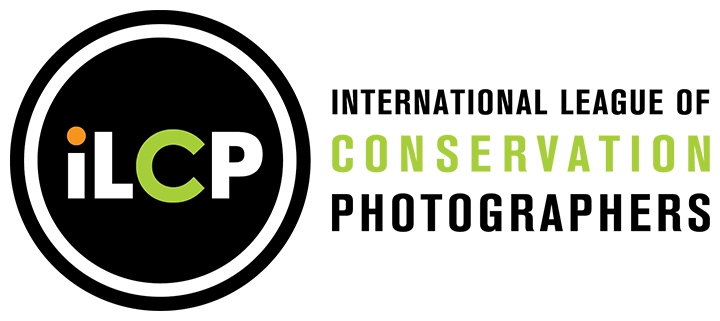Rally for an Oil-Free Coast, Prince Rupert
On May 12, hundreds of people protested the proposed Enbridge Northern Gateway pipeline in Prince Rupert and on Haida Gwaii. A busy week of events showcased the passionate concern northwest communities have for their coast and for opposing the looming prospect of oil tanker traffic.
It was a busy, eventful, and inspiring week in Prince Rupert.
On May 12th over 500 people gathered to protest the proposed Enbridge Northern Gateway pipeline. On the same day, 260 people rallied in Masset on Haida Gwaii.
The rallies were timed to coincide with the annual convention of the North Central Local Government Association, a regional organization made up of town councils from across northern B.C. Enbridge was a platinum-level sponsor of the convention. First Nations and citizens from across northwest B.C. gathered to say no to the proposed pipeline and tankers, and to say yes to a future with sustainable livelihoods, coastal tourism and recreation opportunities, healthy fisheries, communities grounded in culture, and children growing up knowing the taste of shellfish and salmon.
Click here to read Caitlyn Vernon’s story about the rally, published in the Georgia Straight.
Photos were on display in Prince Rupert last week as well, taken by the International League of Conservation Photographers during the September Great Bear RAVE , as powerful reminders of all that would be put at risk if oil supertankers were allowed to navigate the dangerous waters of the north coast.
The Friends of Wild Salmon, with the support of Sierra Club BC and Pacific Wild, hosted a reception and presentation on May 11th called OIL: Our Communities, Our Choices. It was a full house, standing room only. Over 100 people came together to listen and to discuss, surrounded by the stunning images of wolf pups, spirit bears, and the coastal cultures that have relied on the bounty from the sea for millennia. In the crowd were First Nations from as far south as Bella Bella who had made the trip up the coast for this event, concerned citizens, and many elected municipal representatives from across northern B.C.
After screening the film SPOIL a group of Heiltsuk youth spoke about their opposition to the proposed tankers that would put their future at risk. Marven Robinson, an ecotourism operator and elected councillor with the Gitga’at First Nation, spoke eloquently about all that is at stake with the proposed oil tankers, giving the perspective of those who stand to be most affected in the inevitable event of an accident.
Andrew Nikiforuk, an author and journalist who has written extensively about Alberta’s tar sands, connected the struggle to stop the Enbridge pipeline and tankers with the big picture of an oil-dependent society. He called on us to start acting as owners when it comes to our natural resources, to stop giving them away for next to nothing. Nikiforuk also encouraged creative thinking and actions to shift us away from our dependency on oil. For example, establishing train service between all northern communities. He quoted St. Francis of Assisi, “start by doing what’s necessary; then do what’s possible; and suddenly you are doing the impossible.”
Art Sterritt spoke on behalf of Coastal First Nations Great Bear Initiative, the regional alliance of First Nations on the central and north coast and Haida Gwaii. He spoke about how Coastal First Nations have made the choice to move towards a conservation economy, one that sustains communities with jobs and revenue while not undermining the ability of coastal ecosystems to sustain communities and livelihoods into the future. Art gave the example of a shellfish hatchery that Coastal First Nations is now operating in Prince Rupert, and the plan to grow these shellfish at farms up and down the coast as a more sustainable form of aquaculture.
The OIL: Our Communities, Our Choices event provided important context from both the big-picture of an oil economy and the on-the-ground reality of coastal cultures and all that we stand to lose. The next night, the Rally for an Oil-Free Coast provided the strength and inspiration that comes from so many people standing together in solidarity. Finally, the following day, the RAVE images were shared with hundreds of people from all over the world, cruise ship passengers who had stopped in Prince Rupert for just a few hours. It was an opportunity to reach an audience who had not heard of the proposed Enbridge pipeline and tankers. They came from across Canada and the US, from Europe and Latin America. They stood gazing at the RAVE images, they watched films on the issue, they asked questions, they signed action postcards and they went away with images of wolf pups and the prospect of oil spills in their minds.
Take action – let the B.C. and Canadian governments know where you stand on the issue of oil tankers in the Great Bear Rainforest.
About the author:
Based out of Victoria, Caitlyn is working with Sierra Club BC towards full implementation of the Great Bear Rainforest agreements (ecosystem-based management, a network of protected areas, and conservation financing). A naturalist since a young age, a biologist by training, and a conservationist at heart, Caitlyn is committed to the maintenance and restoration of healthy coastal ecosystems. She also firmly believes that ecological solutions need to work for the people who have to live with them. To this end, much of her time is spent working in partnership with First Nations to support regional networks aimed at strengthening capacity to implement and monitor ecosystem-based management over the long term. She is fortunate to spend time in communities on the Central and North Coast.
